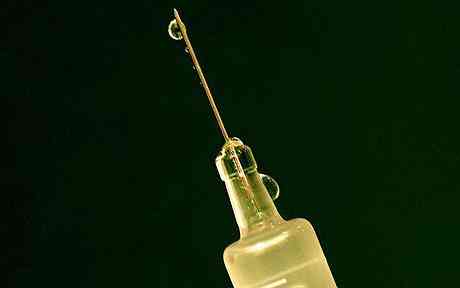800AM GMT twenty-three March 2010
 Early tests showed that goldfish since a sip of the drug lidocaine were incompetent to be fearful Photo REUTERS
Early tests showed that goldfish since a sip of the drug lidocaine were incompetent to be fearful Photo REUTERS A group of researchers have found that the brain might be means to be "re-programmed" to overcome a little of the majority elementary fears.
Scientists insist that since trepidation is a schooled habit, they could be means to switch off the piece of the brain that generates those emotions with a elementary jab.
Dirk Wittenborn a story of brain sweets - and since it brought my father zero but wretchedness Stem cells means to retreat symtoms of mixed sclerosis Genetic sorcery bullet cures have proven a fake emergence Genetic investigate in a "blind alley" in poke for cures for usual diseases Theres so most some-more to Australia than NeighboursEarly tests showed that goldfish since a sip of the drug lidocaine were incompetent to be scared.
Researchers in Japan contend the findings, published in BioMed Central"s open entrance journal, Behavioural and Brain Functions, would be a service for people who humour ongoing phobias that affect their bland lives.
Prof Masayuki Yoshida, of the University of Hiroshima, pronounced the formula of his investigate were exciting.
"One day, the undiscerning phobias could turn a thing of the past," he said.
"Imagine if your trepidation of spiders, heights or drifting could be marinated with a elementary injection - the investigate suggests that one day this could be a reality."
Prof Yoshida complicated the cerebellum, that was thought to be concerned with the growth of fears, in goldfish and humans.
Using exemplary conditioning, Prof Masayuki Yoshida taught goldfish to turn fearful of a light flashed in their eyes.
Prof Yoshida pronounced "By administering a low voltage electric shock each time a light was shone, the fish were taught to join forces with the light with being shocked, that slowed their hearts the standard fish greeting to a fright.
"As you would expect, the goldfish we used in the investigate shortly became fearful of the peep of light because, either or not we essentially gave them a shock, they had fast schooled to design one.
"Fear was demonstrated by their heart beats decreasing, in a identical approach to how the heart rate increases when someone gives us a fright."
The researchers afterwards injected the goldfish with a usual internal analgesic called lidocaine and steady the tests again.
Prof Yoshida pronounced that when the fish were since a sip of the drug they did not show the same trepidation when a light was shone in their eyes.
"We detected that fish that had initial been injected in the cerebellum with lidocaine had fast heart rates and showed no trepidation when the light was shone they were incompetent to sense to turn afraid," he said.
Prof Yoshida pronounced that since the smarts of goldfish were identical to those of mammals, together with humans, it was hoped that with serve investigate it might shortly be probable to assimilate some-more about the biological and containing alkali processes that means us to turn afraid.
For the goldfish, the outcome of lidocaine was usually proxy intrepid fish lapse to being fearful fish as shortly as the analgesic has ragged off.
Nevertheless, one day, the undiscerning phobias could turn a thing of the past, he said.
Prof Yoshida pronounced humans can additionally be "trained" to turn afraid, and in fact, elementary exemplary conditioning secure in the childhood and early growth can insist most of the behaviours.
0 comments:
Post a Comment